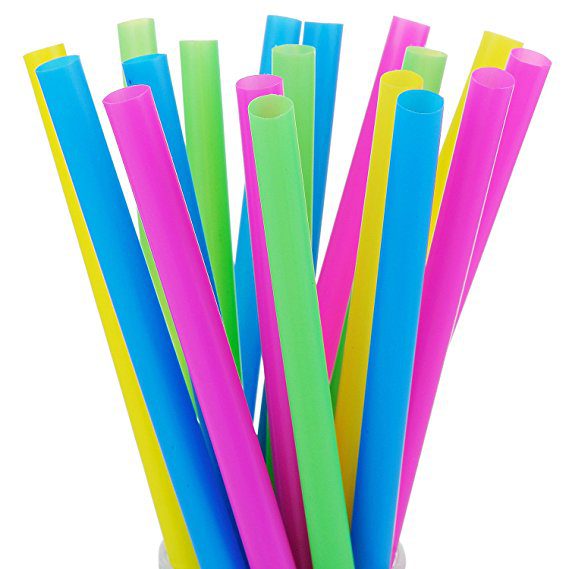Plastic Straws Could Be Out the Door
By • July 2, 2018 0 2499

Suddenly, calling oneself a “plastic” isn’t as appealing as those “Mean Girls” characters thought. Plastic is increasingly getting a bad reputation.
McDonald’s has made the decision to replace plastic straws with paper straws in the U.K. and Ireland. In certain McDonald’s restaurants in the U.S. and in a few other countries, alternatives to plastic straws will be tested.
At an earlier time, plastic straws were seen as an integral part of childhood, available in a variety of colors and shapes and fun to use.
A 2017 documentary titled “Straws” is drawing as much attention to plastic straws as Al Gore’s “An Inconvenient Truth” did to climate change. However, no group of skeptics about the dangers of plastic straws has appeared (as yet).
In D.C., all 12 restaurants in Clyde’s Restaurant Group — including 1789, the Tombs and Old Ebbitt Grill — will only offer plastic straws upon request. Molly Quigley, director of communications at Clyde’s Restaurant Group, said that the decision was made a couple of months ago in order to reduce non-biodegradable waste, which is severely impacting landfills.
Lee Child, the Georgetown Garden Club’s conservation chair, feels that there is a growing movement in Washington, D.C., to get on the bandwagon.
Plastic straws are neither compostable nor degradable, which means that they can hang around for 200 years and affect the well-being of sea turtles and whales. Child said that whales’ stomachs can be so full of plastic that they die.
“We do not need straws,” said Child, calling the reliance on straws as a way to drink various beverages a bad habit. She herself uses a straw that is made out of glass. Other alternatives are metal straws and bamboo straws. But Child wants to see the end of the use of straws, including for herself. “We’re perfectly capable of drinking out of a glass without using a straw,” she said.
Already, the District of Columbia has imposed a five-cent plastic bag fee to discourage this unnecessary use of plastic. The goal, said Zach Rybarczyk, environmental protection specialist at the D.C. Department of Energy and Environment, is to regulate the plastic that can affect rivers, streets and trees. “It’s really paid off,” he said.
Efforts at DOEE aim to work with the business community to regulate food service items, making sure that recyclable and compostable materials, and only such items, are used. The ban on Styrofoam is one example. DOEE coordinates with the Department of Public Works on the issue of recyclables and compostables so that watersheds are protected from toxic waste.
The decision on what to do about plastic straws hasn’t been made yet, but that is because the list of acceptable materials gets updated every two years. “We have to update that list at the end of the year,” said Rybarczyk.

